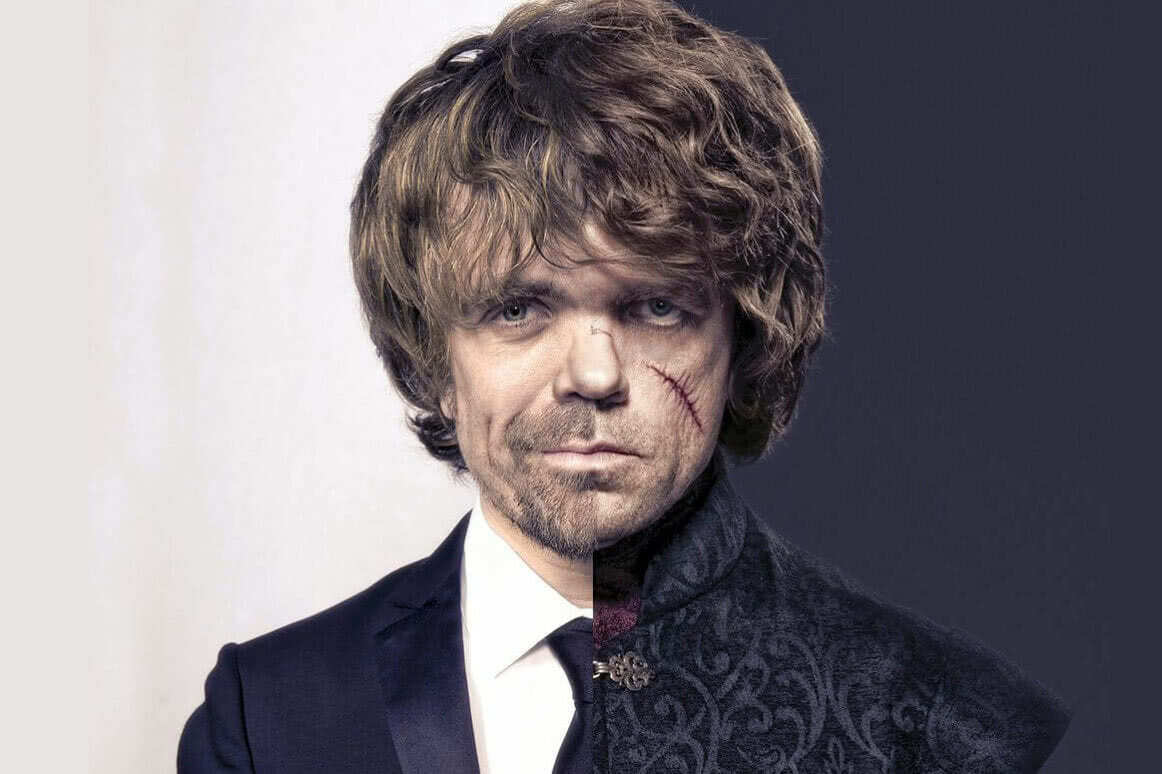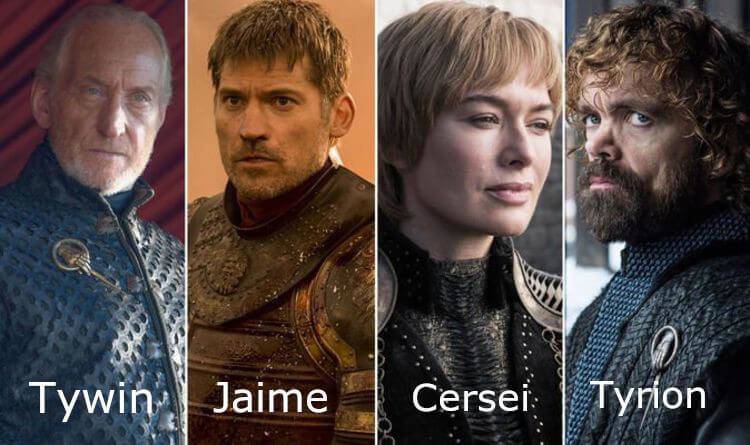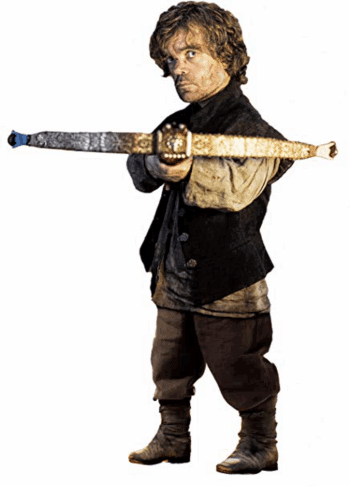
The Game of Thrones as a series has some brilliant castings in its own right, however, one particular performance in the portrayal of “Tyrion Lannister” (the “high functioning alcoholic” dwarf) by the incredible actor Peter Dinklage, makes this series truly outstanding in the realms of complex trauma and alcohol use disorders.
Throughout the series “Tyrion” provides us with many insights into the plights, turmoils that are so often the working mechanics of people that are also suffering from unresolved trauma.
What is “Trauma”
At some stage, we all go through “tough times” in our lifetime and our minds manage to process the outcomes of these events naturally or they don’t. These “tough times” are clinically considered to be “traumatic events” or broadly termed as “trauma”. In the natural run of life how we respond or cope with these “tough times” after the fact is the real topic of this post about Tyrion Lannister.
So How Does Trauma Present Itself?
Many people suffering from trauma-related issues may have become unable to “resolve” or “come to terms with” or in some cases even “remember” the experiences. The phrase, complex trauma comes from those repeated exposures (making them “complex”) with each event leaving its own “psychological scar” or layer of “past stuff to deal with”. Unresolved events land up almost compounding over time because the mind refuses to “let go” of them. This frequently creates new personal heartbreaks and hurt as maladaptive behaviours (fueled by the unresolved trauma) that creep into present-day life and many interpersonal relationships.
Before we start with Tyrion, here are some of the facts to set the stage on complex trauma.
- Complex trauma is most often interpersonal or it happens between people, family, friends and relationships. There is frequently a distinct “feeling of being trapped” or isolation or disempowerment.
- Complex trauma may trackback from early childhood and even be carried over a lifetime as these past events all leave their mark. Cumulative impacts on your psyche may even result in acceptance that these traumatic events as part of your “normal” day-to-day life.
- Shame, loss of trust, and self-esteem associated with these forms of experiences begin to cause distortions of your true identity and or your ability to regulate your resilience to everyday emotional upheavals.
The nett result of an inability to properly regulate your emotional states and responses in later life when presented with certain “triggering” situations. The progression of this inability to regulate emotions may often result in more extreme behaviours such as substance use disorders, depression, anxiety, eating disorders, sex addictions, anger, stress etc. (as is the case with Tyrion Lannister)
Many people with complex trauma don’t strictly fall directly into these defined “disorder” categories and may very well live in the fringes of relationships where a range of interpersonal reactions could still be considered as problematic but that is seemingly a “normal part” of day to day life.
“That was just how we grew up”.
Society frequently points it’s finger at “addiction” as a “cause” or a “disease” but when you start unravelling the layers of complex trauma we can see “addiction” for what it is. A natural response or a symptom of unresolved psychological trauma working its way to the surface.
Ok enough waffle, Let’s dig deeper
Complex Trauma and Addiction On Screen and In The Media
Offscreen there are innumerate examples of actors that are “high functioning” in terms of their career yet still classified as people with prevalent “substance use disorders” behind the silver screen.
It is a rare opportunity that we get to see high functioning “alcoholism” embodied on-screen into a central character. To perform a role of this magnitude with such devastating effect, Dinklage had an obvious connection to his character as a dwarf, yet it’s his portrayal in the context of “alcoholism” and his other subtle “side addictions” makes his contribution truly outstanding.
Inside the extended series and progressive episodes, we get the opportunity to immerse ourselves with the characters that directors, scriptwriters and actors aim to portray.
To deep dive into Peter Dinklage’s portrayal of “Tyrion Lannister” we need to summarise the Lannister family dynamics for any readers uninitiated by the Game of Thrones series which is set in a fictitious “middle ages” patriarchal/monarchial society.
The Lannister Family Character Synopsis
 Tyrion Lannister was borne into a wealthy and powerful family as the dwarf “monster” that killed his mother in childbirth. Son to Tywin Lannister or better known as “Lord Tywin Lannister head of House Lannister, Lord of Casterly Rock, Warden of the West, Lord Paramount of the Westerlands, Hand of the King to three different kings, and Protector of the Realm”.
Tyrion Lannister was borne into a wealthy and powerful family as the dwarf “monster” that killed his mother in childbirth. Son to Tywin Lannister or better known as “Lord Tywin Lannister head of House Lannister, Lord of Casterly Rock, Warden of the West, Lord Paramount of the Westerlands, Hand of the King to three different kings, and Protector of the Realm”.
I’m sure as a small boy child Tyrion would have just preferred to call him Dad.
Tywin Lannister (ol Dad) is a man driven by a lust for power, wealth and “family honour”. The bulk of his attention is focused on his career or the strategic power plays of Tyrion’s siblings. The psychopathic sister (Cersei Lannister) and “golden boy” perfect in every way brother (Jaime Lannister) who through the series secretly maintain an ongoing incestuous relationship.
Tyrion quite literally grows up in the shadow of his families greatness and their secrets. His character is formed not simply by his non-existent priority in the patriarchal pecking order, but also by his closest relatives are consistently undermining him, or blatantly devaluing or discrediting his very existence. (points 3 above).
From early childhood and before Tyrion can even remember, dear sister Cersei and Daddy Tywin attempt to systematically erode his birthright and character through vengeful undermining. Tyrion is forced to accept the blame for being the cause of his mother’s untimely death. These acts of vengeance and victimisation are compounded by the fact that Tyrion is also a dwarf and physically incapable of rising to the bombardment of societal challenges and expectations that are incumbent of the “great” Lannister name.
Yet in the shadows, and through the adversity Tyrion gains many great insights into the dynamics and weaknesses of himself and his family and the associated families that rule the realm. Tyrion has literally no choice from a young age but to accept the abuse, dissociate from the victimisation, observe and learn as his daily survival largely depends on it. Through these observations and learnings, he becomes somewhat of a hidden master in the social and political dynamics of the Game of Thrones.
Tyrion as an adult feels the animosity and constant contempt from his father and sister but yet still deeply yearns for their acceptance and validation that he never receives. Tyrion’s adult identity, his wit and general likability are a beautiful facade to his underlying feelings of powerlessness and internal rage that steer his self-destructive relationships with alcohol and sex.
Outside of Tyrion’s relationships with alcohol and sex we find an outwardly calm, highly intelligent, socially adept character that is able to fearlessly morph into a range of roles in service to the monarchy. It is however behind and between the scenes that we see his Tyrion’s addictions coming to the forefront.
 In a final act of vengeful political manoeuvring and focused betrayal, Tywin (ol Dad) manages to pin the Kings murder on Tyrion who after many years of pent rage (and for his survival) shoots his Daddy dear Tywin through the chest with a crossbow bolt and then flees to faraway lands.
In a final act of vengeful political manoeuvring and focused betrayal, Tywin (ol Dad) manages to pin the Kings murder on Tyrion who after many years of pent rage (and for his survival) shoots his Daddy dear Tywin through the chest with a crossbow bolt and then flees to faraway lands.
Tyrion, the fight and flight dwarf is no longer in the shadows……..tune in next week to see how we profile Tyrion…..
Long post? we suggest you share it on your Facebook page, so that you can continue reading the best stuff later 🙂
That Rock Bottom Alcoholic
Suicide by alcohol does not encapsulate Tyrion Lannister. “Rock bottom” “alcoholism” yet is quite often where a large segment of society sets a ridiculous benchmark for identifying an alcohol use disorder; where in fact “rock bottom” is the extremity of the disorder.
Tyrion is someone that strives to settle the emotional balance and he lives with purpose and direction yet, unfortunately, he is also perpetually caught up in or drawn into conscious and subconscious cycles of alcohol torment.
There is a distinction of “alcoholism” when someone’s subconscious drive compels them into routine moments of submission and finally results in in substance use as a means of “self-medication” or to quiet the powerless rage of pent emotion.
People with “rock bottom” alcohol use disorders “generally” have one of two options. Get sober or die. This is literally where any recovery programme will work because abstinence has become a life and death decision, you either get sober or die.
Tyrion’s not quite there, alcohol is more of a committed lifestyle problem than a life and death decision but to label him as just a “heavy drinker” would diminish his risk of rapidly progressing toward typical “rock bottom alcoholic” stage.
Admitting Tyrion To King’s Landing 12 Step Programme
Through the series and Tyrion’s plight, the only family member that seems to have a deeper tolerance for him is brother and golden boy, Jaime. It seems fitting in our imaginary interpretation that Jaime sees his brother Tyrion struggling to contain his alcoholing and whoreing do the next right thing, save the family name and check Tyrion into the local 12 Step Programme.
Tyrion (raised in the light of the seven) knows that it won’t help but in candour to his brother’s wishes kicks off the first step of his atonement from alcohol (as is customary in the light of the seven) primarily because Tyrion understands on a deeper level that the “rock bottom” stage is pending.
 “Make a list of persons I had harmed and be willing to make amends to them all.”
“Make a list of persons I had harmed and be willing to make amends to them all.”
Dear Dad and Cersei Lannister.
I Tyrion Lannister, first of my name. Am very, very sorry that I came out a dwarf and truly wish that our dear mummy had not died on my entrance into this world.
Forget this, I’m out!
Tyrion joins the legions of people who exit the King’s Landing anonymous programmes, and understandably so.
At such a critical and early point in recovery does any amount of “saying sorry” to the perpetrators ease emotional burdens carried from childhood? The step generalisation example needs to be asserted for people newly coming into recovery are seldom in an emotionally stable state to confront their demons head-on, yet the path to “recovery” clearly states steps that they may not be ready, or even willing to take.
Common sense prevailing: We also know that meaningful conversations between emotionally charged family members can only really happen when some degree of emotional stability has been established and everyone is ready to authentically express themselves and work through finding a meaningful resolution or acceptance.
Stigma stigma stigma
Humility is a hard pill to swallow for the Lanisters. Attending meetings with the rock bottom squad is most certainly going to bring a smirk of glee to ol Dad and Cerseis’s emotionless faces. Tyrion is simply not the sort to give anyone that level of satisfaction at his expense. Tyrion would rather die by his addictions than face his family in the defeat of a substance.
Fight.
Trauma Responses
While most of us are familiar with the fight or flight responses as a reaction to a perceived threat or imminent danger that threatens our very survival. There is also a lesser-known third cousin or the freeze response which adds another “coping mechanism” to our repertoire of emotional defences.
The freeze response effectively paralysis victims into a state of fear.
A common example may be with rape victims that neither runaway or fight their attackers. Essentially these people are unable to endure the prevailing attack emotionally and involuntarily disconnect their minds from the situation. Command centres of their brain quite literally shut down all “logical” responses and they are paralysed in fear.
In action, these trauma responses are happening so quickly that most people aren’t aware of them, nor can they do anything about them. What makes the “freeze” response so insidious with complex trauma is that we don’t always have a clear recollection of the event and are only left with residual unresolved emotions thereafter.
Children specifically learn the freeze response through dissociation from emotionally traumatising events. By simply disconnecting, zoning out, freezing or distracting their attention onto something that they are able to emotionally process. Children, do not have the ability to flee from their caregivers/attackers nor are they able to fight them, so the only response option is to zone out or freeze or shut down and hope the problem goes away.
PTSD and Game of Thrones
Archetypal traumatised and broken families feature throughout the series, yet do not necessarily manifest into an addiction disorder as they do with Tyrion Lannister.
Theon Greyjoy (incredibly played out by Alfie Allen) struggles with PTSD (Post-Traumatic Stress Disorder) and while he certainly has quite a number of good reasons to be affected by complex childhood trauma he seems to be relatively ok, until one specific event unfolds. Without re-explaining, the Game of Thrones plot for another character. Theon at some point (adult life) in the series, Theon is captured by a vicious rival that proceeds to mercilessly torture him. The final result of the torture was the removal of Theon’s penis. This act “breaks” Theon and Allen takes us on an aftermath journey of PTSD with a significant traumatic event.
While CPTSD Complex Post-Traumatic Stress Disorder tends to be a lifetime of trauma PTSD Post-Traumatic Stress Disorder can usually isolate the trauma down to singular identifiable events.
In psychotherapy, PTSD Theon would be able to distinctly tell you where the wheels fell off the bus; whereas CPTSD Tyrion, on the other hand, would have a hard time picking one particular event in a lifetime of deeply personal papercuts and jumbled emotions.
Both conditions carry similar traits yet, Tyrion typifies so much of what we work within our executive addiction treatment centres in South Africa every day.
The Lannister Family Therapist Work is Cut Out
In (point 1) above we mentioned that complex trauma is “most often interpersonal” or where relationship discourses can become the bedrock that misshapes a person’s beliefs and behaviours over a lifetime. What makes therapy so tricky is that Tyrion (patient Zero) does not exist in isolation. He is somewhat a product of the environment in which he was raised.
Tyrion’s lot in life is extreme. (Of course, that is what makes GOT so interesting and appealing). His performance, however, highlights many natural trauma responses to his victimisation, abandonment and lack of intimate connections with his family.
While extreme, the circumstances that Tyrion’s character endures are not entirely uncommon in our modern-day life.
Names and characters can be changed to protect the identities of work/alcoholic absent mothers/fathers, sibling rivalry/victimisation general abuse/molestation or neglect/bullying simply poor communication skills and harboured guilts of maladaptive family behaviours the effects in modern-day life are not too dissimilar.
Keeping in mind that there is no scale of measurement for what a child finds traumatic, and there is no timeframe where resident memories may be forgotten. Trauma tends to live as long as their host.
Throughout the series, Tyrion maintains his social-emotional state save for a very few occasions and in some very specific company, sober. The rest of the time he maintains it through copious quantities of alcohol.
Tyrion’s Relationship With his Tywin Lannister (Father)
“All dwarves are bastards in their father’s eyes”
“I am your son. I have always been your son”
Dwarfs, Drugs and Intimacy Disorders
“Drinking and lust. No man can match me in these things. I am the god of tits and wine”
“It’s not easy being drunk all the time. If it were easy, everyone would do it.”
“I Drink And I Know Things”
“Drinking and lust. No man can match me in these things. I am the god of tits and wine… I shall build a shrine to myself at the next brothel I visit.”
Living In The Shadow Of Expectation
“You’re in the great game now, and the great game is terrifying”
“Never forget what you are, the rest of the world will not. Wear it like armour and it can never be used to hurt you.”
“I have a tender spot in my heart for cripples and bastards and broken things.”
“A mind needs books like a sword needs a whetstone.”
“Of course we are. Just because I pay you for your services doesn’t diminish our friendship.”
“I try to know as many people as I can. You never know which one you’ll need.”
“I’ve got every kind of filth down here except the kind I like”
“Death is so final, yet life is full of possibilities.”
